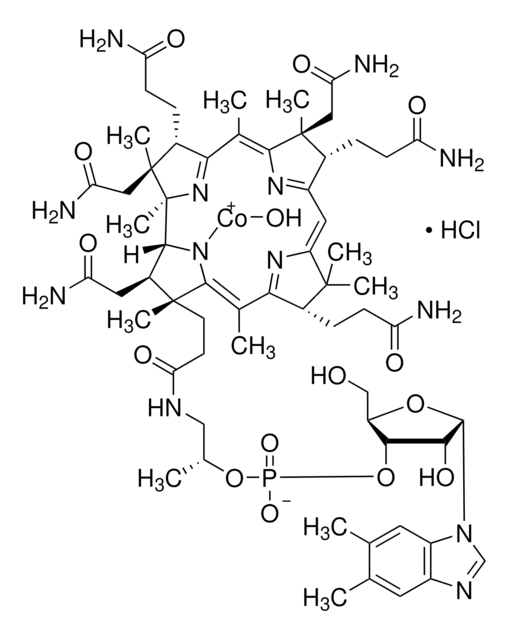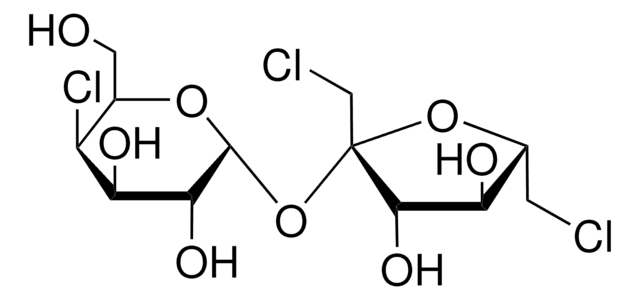S1600000
Sucrose
European Pharmacopoeia (EP) Reference Standard
Synonym(s):
α-D-Glc-(1→2)-β-D-Fru, α-D-Glucopyranosyl β-D-fructofuranoside, β-D-Fructofuranosyl-α-D-glucopyranoside, D(+)-Saccharose, Sugar
About This Item
Recommended Products
grade
pharmaceutical primary standard
API family
sucrose
manufacturer/tradename
EDQM
mp
185-187 °C (lit.)
application(s)
pharmaceutical (small molecule)
format
neat
SMILES string
OC[C@H]1O[C@H](O[C@]2(CO)O[C@H](CO)[C@@H](O)[C@@H]2O)[C@H](O)[C@@H](O)[C@@H]1O
InChI
1S/C12H22O11/c13-1-4-6(16)8(18)9(19)11(21-4)23-12(3-15)10(20)7(17)5(2-14)22-12/h4-11,13-20H,1-3H2/t4-,5-,6-,7-,8+,9-,10+,11-,12+/m1/s1
InChI key
CZMRCDWAGMRECN-UGDNZRGBSA-N
Looking for similar products? Visit Product Comparison Guide
General description
For further information and support please go to the website of the issuing Pharmacopoeia.
Application
Established for the preparation of the below-given solutions as per European Pharmacopoeia:
- Reference solutions in the identification using infrared absorption spectroscopy and thin-layer chromatography, according to the monograph 0204
- Reference solutions (a) and (b) to test free sucrose in sucrose monopalmitate and sucrose stearate using liquid chromatography (General text 2.2.29), according to the monographs 2319 and 2318 respectively
- Reference solution (a) in the identification of sugar spheres using thin-layer chromatography (General text 2.2.27), according to the monograph 1570
- Reference solutions (b) and (c) in the testing of related substances in sucrose, liquid using gas chromatography (General text 2.2.28), according to the monograph 2597
Packaging
Other Notes
related product
Storage Class Code
11 - Combustible Solids
WGK
WGK 1
Flash Point(F)
Not applicable
Flash Point(C)
Not applicable
Choose from one of the most recent versions:
Certificates of Analysis (COA)
Sorry, we don't have COAs for this product available online at this time.
If you need assistance, please contact Customer Support.
Already Own This Product?
Find documentation for the products that you have recently purchased in the Document Library.
Customers Also Viewed
Our team of scientists has experience in all areas of research including Life Science, Material Science, Chemical Synthesis, Chromatography, Analytical and many others.
Contact Technical Service




